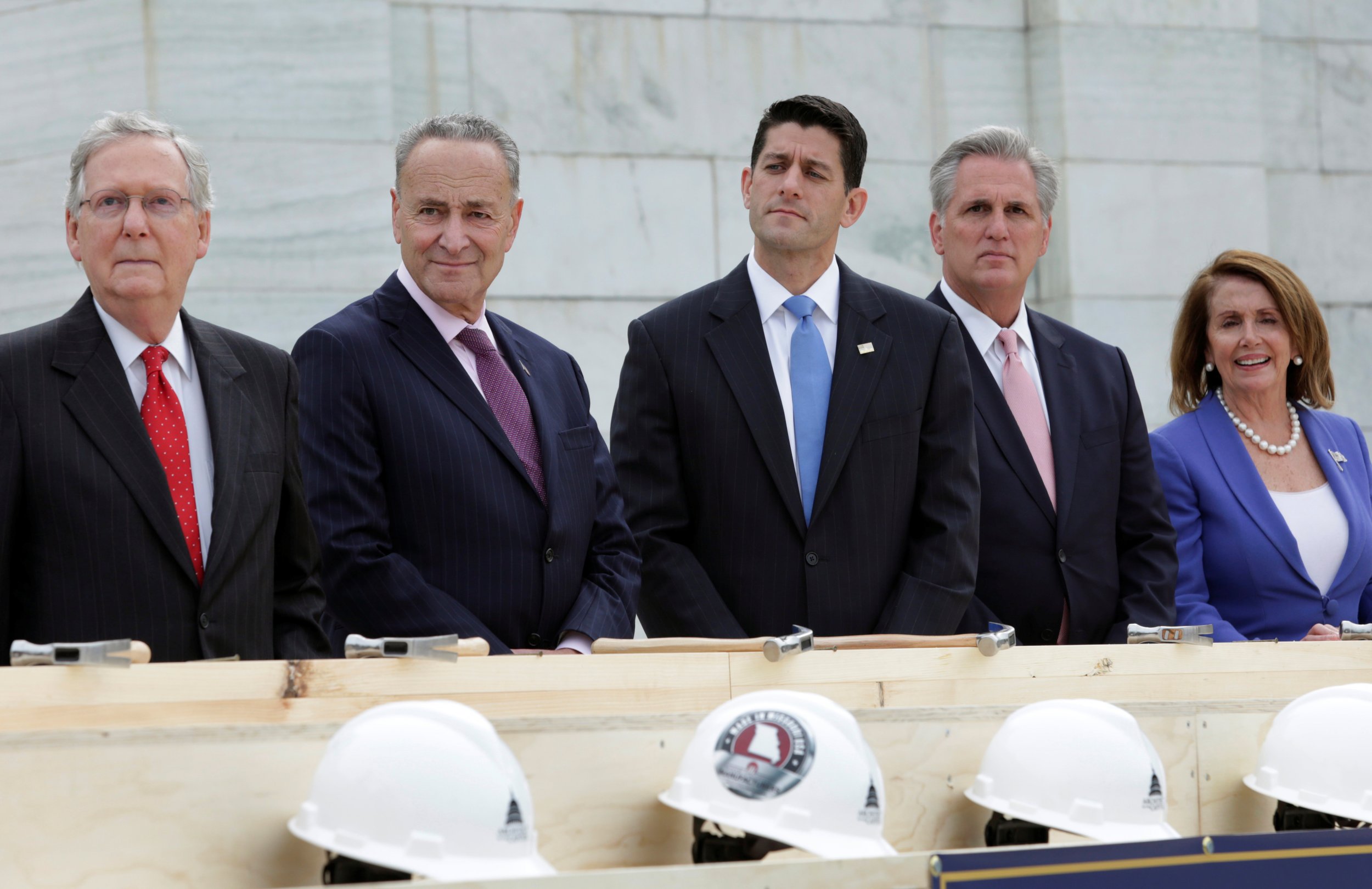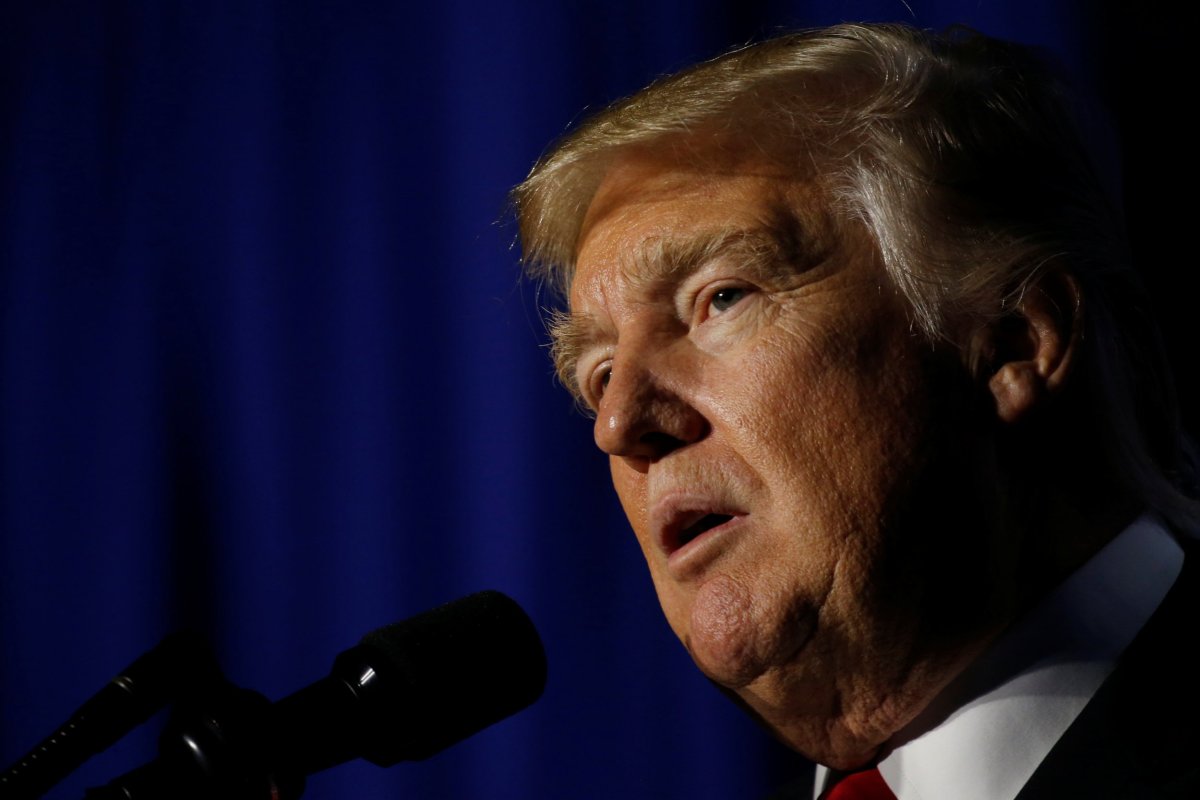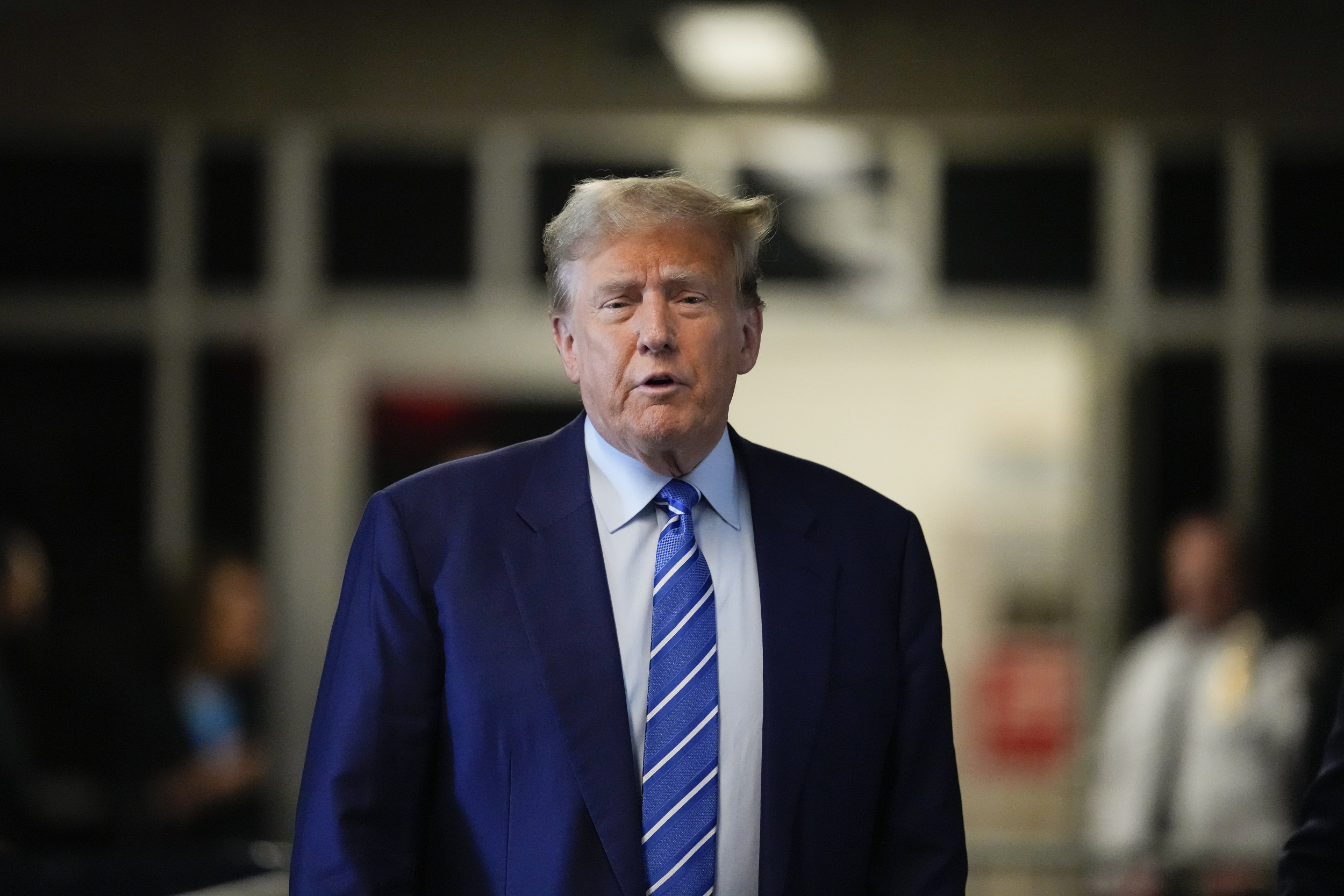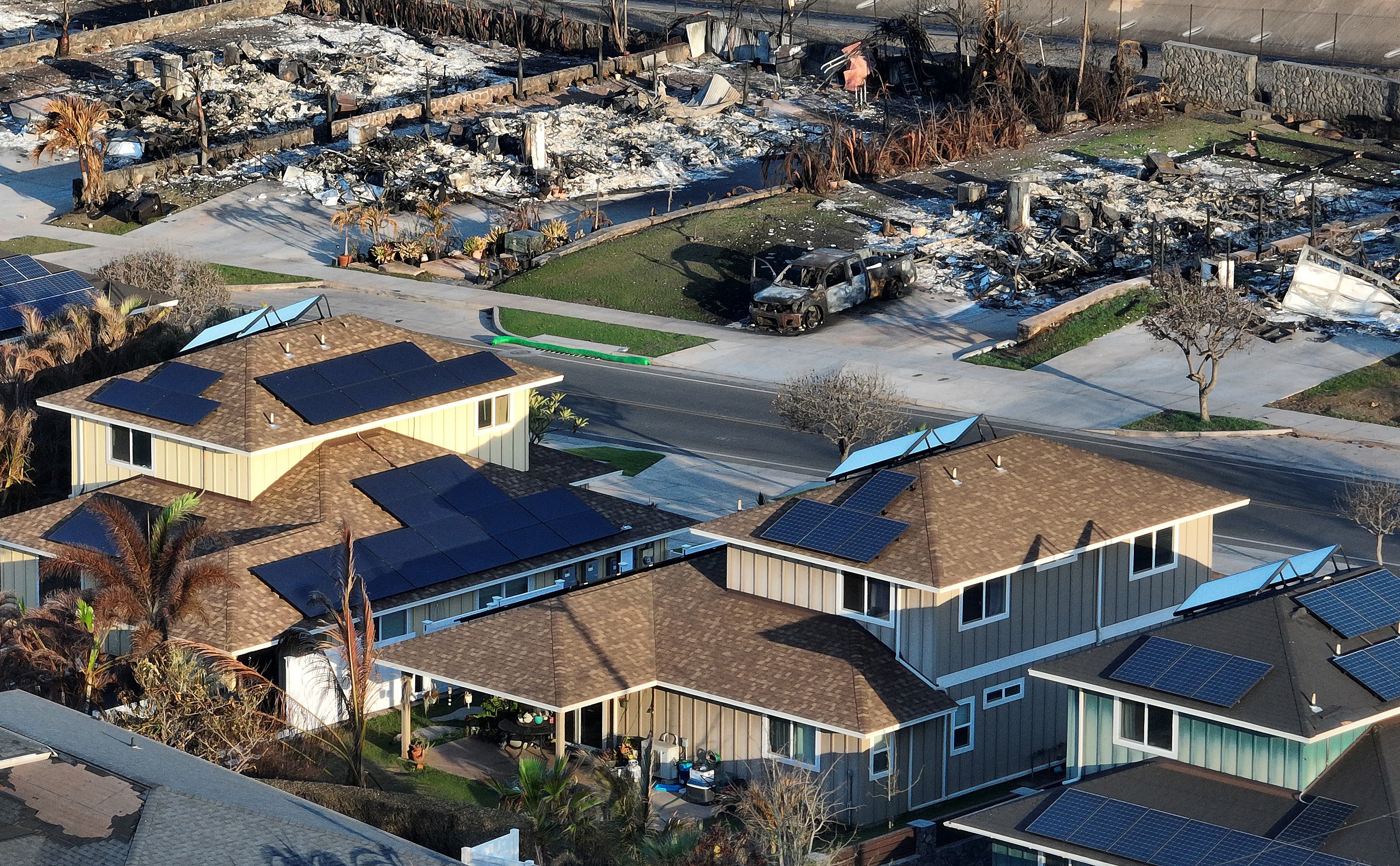
Quora Questions are part of a partnership between Newsweek and Quora, through which we'll be posting relevant and interesting answers from Quora contributors throughout the week. Read more about the partnership here.
Answer from Brad Porter, writer:
Wouldn't the checks and balances of the U.S. government stop most of Donald Trump's acts? No. Not unless we decide to demand it.
I think we misunderstand the whole "checks and balances" thing at our peril. I hear it now from people on the left, or outside observers looking in, hoping that these mysterious "checks and balances" will protect us from Trump. I heard this a lot from prospective Trump voters, that these "checks and balances" things would kick in and curb the worst of his excesses (I feel like at least 7/10ths of being a Trump voter was explaining how he didn't really mean the terrible things he was saying or wouldn't actually be able to do the terrible things he was promising to do).
Here is the truth of it: There is absolutely nothing that President Trump can't do. No convention he can't plow through, no statute he can't ignore, no dissent he can't thumb his nose at, no custom he can't cannonball, no perceived "limitation" he can't just walk right through like a pane of glass. Unless we choose to hold him accountable.
Checks and balances are not like some automated process. There's no buzzer that goes "bzzzzt" and Xs out a signing statement he produces if it goes beyond constitutional limits. We don't have Timecops. There's no Krypton High Council that all of Trump's decisions have to go through before they're enacted. "Dude, you can't tweet that—what's the matter with you?"
I am a huge proponent of constitutionalism. Our system of government is beautifully designed in the way that it plays three distinct functions of government against each other so no single one could become too powerful. It has been a genius of social engineering, and while many bemoan that it makes taking action difficult, that's a feature, not a bug. Those collective machinations are what we refer to as "checks and balances," not like a crowbar behind a pane of glass we can smash in case of emergency, but rather the aggregate actions of our representatives and others who serve in government. Most of the time, those actions, taken together, do a reasonably good job of keeping things on track.
But here is the deep dark secret of any system of government: Ultimately, a law is only worth the paper it is printed on. The constitution is just some old pieces of parchment kicking around behind glass at the National Archives. These are just things, just words on a page.
It is not the law itself that matters—rather, it is the collective decision of society to adhere to that law and to punish those who break it. It is not the law itself that sets boundaries—it is the demonstrable and actionable will of those in a position to uphold and/or defend it. And at any point we—we citizens and our elected representatives—can just kind of decide, you know, not to.
As it pertains to the powers of the President of the United States of America, this system has worked reasonably well for many, many years, but over time it has more and more drifted towards a, let's say "loose" interpretation of what's legal or not—"well, it says I can only do this, but I really want to do that, so maybe if I just explain how that is kind of like this, I can do it." Nevertheless, enough people in enough positions of power had enough of an interest in asserting their own power that the worst excesses were kept in check most of the time, some big exceptions aside.
But in recent years, the trend towards the executive being "the decider" has accelerated greatly. George W. Bush in particular was responsible for perhaps one of the biggest usurpations of authority by a president since FDR, and that trend was certainly not rolled back but was only further normalized and added to by Barack Obama (Dear conservatives: yes, Bush was worse. Dear liberals: yes, Obama was bad). And, one thing that both presidents discovered, was that if you basically asserted something, and nobody had the balls to call you on it, you could make something legal or not, constitutional or not, just by force of will and gumption, no matter what those pieces of paper say.
We think of this as only being applicable in the case of coups or revolution—where literally everybody who matters in society wakes up one day and basically decides "Hrm, that whole law thing is stupid, we're not going to do that anymore, we're going to toss that out and do it our way now." It's not like the piece of paper changed, everybody just kind of decided the piece of paper doesn't matter anymore. But that same process happens more gradually too, as a sort of slow atrophy of the rule of law until it's weak enough that you can just start, you know, violating it without consequence.
Torture is a great example. There is basically absolutely no way that torture is legal. It is hard to overstate how illegal it is according to basically every body of law we have and ascribe to. This was not and never really has been a "grey area." For America, by the letter of the law, a guy in the military or law enforcement using physical torture to try and extract information or confession is very illegal.
And yet, a small cabal of civilians in the Oval Office just kind of started saying one day "Well, you know what, we think it should be legal. So, yeah. We're just gonna go ahead and operate on that assumption from now on."
And, guess what, they did! They didn't prove that it was legal in court. They didn't get Congress to write a law saying it was legal. It wasn't put to a vote. They basically just started doing it, and every time someone called them on it they replied with what amounted to "nuh uh."
And it worked! At every step when checks and balances ought to have kicked in, there was simply not a strong enough collective will to adhere to the letter of the law and enforce it to overcome the inertia of executive action. Torture is still presumably illegal, but if you engage in it at the behest of the president and with some internally reasoned legal argument for its use, you can just kind of do it and also, as Obama shamefully normalized, you won't suffer any consequences from doing it. It's illegal, but we can do it, nobody will stop us from doing it, and we can get away with it. So, it becomes, well, sort of legal!
Bush proved that, in matters pertaining to war, foreign policy and civil liberties, basically the president can do whatever he wants and, usually, it will overwhelm the will of the people normally tasked with reigning him in. Obama proved (and Bush did too), that in matters pertaining to the national economy, immigration, civil rights, and more, you can basically do the same. In both cases, the Supreme Court of the United States and most of the higher courts were wildly deferential to presidential authority (despite conservative caricatures of all these "activist" judges I keep hearing about), loathe to carte blanche overturn major national initiatives. And in both cases, Congress could never quite get it together enough to act—and that's even assuming the supermajority disagreed enough to want to act, which most of the time, let's be honest, they didn't.
And we, as voters and as citizens, tend to let them get away with it because the end goal often seems like a good idea and that goodness of the ends often outweighs the "technicalities" in the means. Who doesn't want to stop terrorists or fix the economy, bro?!
And it is into this new milieu of executive authority that Donald Trump steps.
In some cases, the lack of checks and balances is literally that—it just simply never occurred to us to write down a law about such and such a thing. Financial transparency for an incoming president, for instance. We just kind of assumed that candidates for president would keep doing that, and if they didn't, they'd be hounded off the stage. But there's no statute making them, just convention. In other cases, it's stuff that we know is illegal—like say receiving money from foreign governments when you're the President of the United States of America for instance—but, well, who is going to show up and serve Trump papers on that? Who is going to initiate that action, and who has to approve it, and then who is going to enforce it?

Checks and balances are not self-executing. They require people enforcing them.
And, when you're asking "can checks and balances stop this?," often the answer may well be "yes" but the next question is always "ok, so whose going to do it?" And, after that "whose going to make them? What if they don't?"
This is, by the way, not a Republican or a Democratic issue. Both parties—and here I mean the voters as much as the representatives—have been terrible at slowly letting a political culture based on a rule of law corrode and dissolve. Because each time the pendulum swings, those same powers a partisan hated when the other guy was using it, well it's now awesome when it's our guy. We have, as a culture, mostly seemed to have drifted to the idea that the ends usually do justify the means, and that we should only seek to enforce rules when they trip up the other guy. So we just spend our time whining about the ends, and the restrictions on the means atrophy and decay. And, ultimately, when we need them most, we find them brittle and frail, and the people we would most need to step in an utilize them are no longer much interested in doing so, and face no real consequences when they don't.
The recent Supreme Court fights is another great example. Many liberals wanted Obama to fiat his appointee on his way out the door. Many Republicans wanted "their" team to stonewall indefinitely. But those same Republicans will scream like six-year-olds if the Democrats stonewall a Trump appointee and declare it an incredibly anti-democratic example of sure loserism. And were Trump to play hardball and recess appointment his nominee, Democrats will go bonkers. Both sides, at nearly every single swing of the pendulum, forget the most basic rule of authority expansion—it is almost always one directional. It's not like the next guy gives it back.
Ultimately, the power we demand for our political allies is the power that our political enemies will inherit.
And both George W. Bush and Barack Obama—and more importantly their supporters—spent a lot of time demanding they had this or that authority, and that checks and balances did not or should not apply to them, and that they would vote for or against their representatives accordingly. And of course it's not just those two—this is a trend that goes back a long way—but it has certainly accelerated more and more exponentially in recent years.
And it is into this new milieu of executive authority that Donald Trump steps.
And unless we demand that our representatives in all branches of government respect the rule of law or face the consequences—and mean it—there's no real mechanism for that to happen, no incentive for those representatives to stick out their necks.
Unless we begin to view checks and balances as an actual important feature of government and not just a partisan tool, and the law as something that needs to be respected and strictly adhered to whether you agree with it or not, or whether it inconveniences your political agenda or not,I don't see any particular reason why they would.
Wouldn't the checks and balances of the US government stop most of Donald Trump's acts?
Theoretically, yes.
In practice?
It depends.
Do we want them to or not? Nobody is going to on their own, so long as the incentives are stacked in such a way where doing nothing is less painful for those in power than doing something.
The power is ours—but we have to have the will and wherewithal to use it.
Will we?
We shall see.
Wouldn't the checks and balances of the U.S. government stop most of Donald Trump's acts? originally appeared on Quora—the knowledge-sharing network where compelling questions are answered by people with unique insights. You can follow Quora on Twitter, Facebook, and Google+. More questions:
- Politics and Government of the United States of America: Why did Republicans approve Obama's cabinet picks so much more quickly than the Democrats are approving Trump's picks?
- Government: What is the most corrupt practice by the United States government?
- Donald Trump: What are your thoughts on President Trump's accusation that millions voted illegally in the 2016 election?
Uncommon Knowledge
Newsweek is committed to challenging conventional wisdom and finding connections in the search for common ground.
Newsweek is committed to challenging conventional wisdom and finding connections in the search for common ground.
About the writer
To read how Newsweek uses AI as a newsroom tool, Click here.








